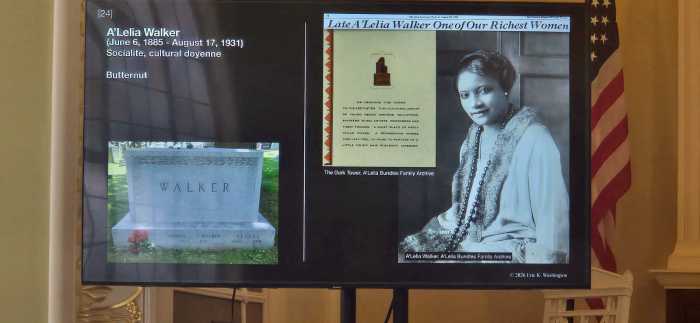Arizona Chief Justice Scott Bales. | ARIZONA SUPREME COURT
Resolving a split between two intermediate appeals court panels, the Arizona Supreme Court, on September 19, ruled that the wife of a woman who bears a child using anonymous donor insemination, with that wife’s consent, is the child’s legal parent. The state’s high court relied on statutes providing that a woman’s husband, under similar circumstances, is the child’s legal parent.
The ruling in McLaughlin v. McLaughlin is a logical application of the US Supreme Court’s ruling this past June in Pavan v. Smith, which dealt affirmatively with the related question whether Arkansas must recognize the parental status of a same-sex spouse by listing her as a parent on the child’s birth certificate. Pavan, in turn, relied on the Supreme Court’s 2015 Obergefell marriage equality decision.
The Supreme Court made clear in Pavan that the constitutional right for same-sex couples to marry is not just about the right to marry and have all states recognize that marriage, but also about the right to enjoy all the benefits and be subject to all the obligations of marriage on an equal basis with different-sex couples.
In donor insemination cases, a birth mother’s lesbian spouse is a legal parent
The Arizona court, applying this principal, adopted a gender-neutral construction of a statute originally aimed at addressing the parental rights of men, rejecting the argument by a judge who partially dissented and asserted that correcting the statute’s flaw should be left to the legislature.
Kimberly and Suzan McLaughlin married in California in 2008, during the five-month window before voters there adopted Proposition 8. They later decided to have a child together. Suzan went through donor insemination, but unsuccessfully. Kimberly then went through the procedure and became pregnant. The couple moved to Arizona during her pregnancy.
Prior to the child’s birth, the women signed a joint parenting agreement in February 2011, in which they declared that Suzan would be a “co-parent” of the child, stating: “Kimberly McLaughlin intends for Suzan McLaughlin to be a second parent to her child, with the same rights, responsibilities, and obligations that a biological parent would have to her child” and that “should the relationship between us end, it is the parties’ intention that the parenting relationship between Suzan McLaughlin and the child shall continue with shared custody, regular visitation, and child support proportional to custody time and income.”
State courts generally take the position that such parenting contracts, while evidence of the intent of the parties, are not binding in custody determinations during a divorce, where the child’s best interests are considered paramount.
Kimberly, a doctor, worked to support the family, and Suzan stayed at home to care for the baby. By the time the child was almost two years old in 2013, the women’s relationship had deteriorated and Kimberly moved out with the child, cutting off Suzan’s contact with their son. Suzan filed petitions in state court seeking dissolution of the marriage and legal decision-making and parenting time with the child, but she couldn’t file for a divorce because Arizona did not yet recognize same-sex marriages. Her lawsuit included a constitutional challenge to the state’s anti-gay marriage laws.
After the Supreme Court, in late 2014, declined to stay the Ninth Circuit Court of Appeals marriage equality ruling, which applied in Arizona, Suzan’s lawsuit turned into a divorce case. But the question about her status as the child’s parent, to whom she is not biologically related, remained.
The trial judge in Pima County, Lori B. Jones, confronted Arizona law that make clear that if a husband consented to his wife’s donor insemination, he is presumed to be the child’s legal father. The problem was the gendered language of the statute.
Based on the US Supreme Court’s 2015 Obergefell marriage equality ruling, wrote Arizona Supreme Court Chief Justice Scott Bales about the conclusion Jones came to, “the court reasoned that it would violate Suzan’s Fourteenth Amendment rights not to afford her the same presumption of paternity that applies to a similarly situated man in an opposite-sex marriage.”
Jones also concluded that the birth mother should not be allowed to rebut that presumption where it was undisputed that her same-sex spouse had consented to the insemination process and was obligated to contribute to the child’s support.
The Arizona Court of Appeals agreed with Jones’ reasoning on the Fourteenth Amendment issue and further concluded that Kimberly, under the principal of equitable estoppel, should be barred from asserting a legal right contrary to her prior representations and actions.
After that appellate ruling, a different panel of the Court of Appeals released a contrary ruling in Turner v. Steiner, concluding, by a 2-1 vote, that “a female same-sex spouse could not be presumed a legal parent [under the statute] because the presumption is based on biological differences between men and women and Obergefell does not require courts to interpret paternity statutes in a gender-neutral manner.”
The Arizona Supreme Court granted Kimberly’s petition to review the Court of Appeals ruling because it raised “a recurring issue of statewide importance.”
Chief Justice Bales’ opinion for the high court made clear that one could easily resolve this dispute in favor of Suzan without even referring to the Pavan ruling from June, because Justice Anthony Kennedy’s 2015 opinion in Obergefell addressed all the salient issues in very clear language. The idea that Obergefell required only that states allow same-sex couples to marry and recognize same-sex marriages from other states was contrary to the court’s language and reasoning.
“‘The Constitution does not permit the State to bar same-sex couples from marriage on the same terms as accorded to couples of the opposite sex,’” Bales wrote, quoting from Kennedy’s opinion, which, he said, noted “harms that result from denying same-sex couples the ‘same legal treatment as opposite-sex couples.’”
In particular, Bales emphasized, the Supreme Court had focused on the importance to children of same-sex couples having equal recognition of their families. Pointing to Michigan plaintiffs who were part of the Obergefell case who sought to marry to secure the parental status of both of them regarding the children they were jointly raising, Bales wrote, “The benefits attendant to marriage were expressly part of the Court’s rationale for concluding that the Constitution does not permit states to bar same-sex couples from marriage ‘on the same terms.’ It would be inconsistent with Obergefell to conclude that same-sex couples can legally marry but states can then deny them the same benefits of marriage afforded opposite-sex couples.”
A parental presumption for the spouse of a woman who gives birth, the Arizona Supreme Court concluded, is one of the “benefits of marriage” that must be equally afforded to same-sex couples. The high court rejected Kimberly’s argument that the statute dealt only with biological parentage, an illogical proposition anyway given that the law aimed at extending a parental presumption to a man who was not a child’s biological father but had consented to his wife’s insemination.
Rather than striking down the gendered parental presumption statute as unconstitutional in light of Obergefell, the high court instead extended it to apply to same-sex couples by adopting a gender-neutral interpretation of it.
Suzan is represented by the National Center for Lesbian Rights, whose legal director, Shannon Minter, argued the case in the Arizona Supreme Court, assisted by staff attorneys Emily Haan and Cathy Sakimura, with local counsel Claudia D. Work of Campbell Law Group in Phoenix. Amicus briefs were filed by the American Civil Liberties Union, a University of Arizona law school clinic, and a group of Arizona family law practitioners.
Kimberly is represented by Keith Berkshire and Erica L. Gadberry of Berkshire Law Office in Phoenix.



































